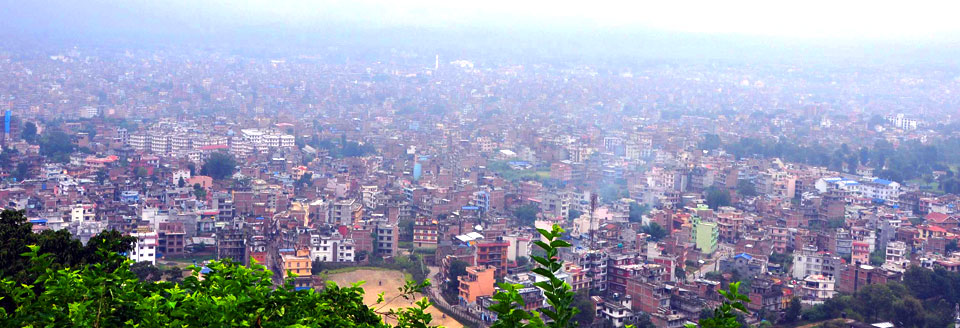

NTB calls off planned tourism fair after sit-in
The Nepal Tourism Board (NTB) has been forced to cancel the planned Sixth National Tourism Fair after various travel trade associations held a sit-in on its premises on Wednesday in protest against alleged financial irregularities.The country’s tourism promotion body called off the three-day fair slated for May 2 due to the demonstration held by the private sector demanding that it make its financial transactions transparent and immediately appoint a CEO in a competitive and fair manner.
The annual National Tourism Fair is the country’s largest tourism fair that aligns diverse tourism products with marketing initiatives by bringing all the stakeholders into a single platform from across the country.
“We are largely concerned by the misuse of funds that is collected from tourists for the country’s tourism promotion,” said Ashok Pokhrel, president of the Nepal Association of Tour Operators.
“If you look at the NTB’s amended Financial Bylaws, they have allowed its CEO to spend a huge amount of money without going through legal procedures,” he said. “Travel trade associations are surprised by the amended Financial Bylaws that contain many loopholes to misuse money.”
As the government has permitted the NTB to double the tourism service fee that it collects from tourists departing from Tribhuvan International Airport to Rs 1,000 from March 1, the NTB’s annual budget is expected to balloon to Rs 1.21 billion. “The NTB has huge resources, but it has not been allocated for genuine purposes,” said Pokhrel.
Although the NTB has been formed to promote tourism under the public-private partnership model, travel trade entrepreneurs said that all programmes and projects were being conducted by the board unilaterally.
The NTB’s Financial Bylaws 2013 that were amended four months ago is another unilateral decision of the board of directors of the NTB which is chaired by the tourism secretary. The Financial Bylaws have not been made public yet. According to the amended rules, the NTB chief is authorised to spend Rs 10 million at a time for tourism promotion inside the country. Earlier, this amount was around Rs 500,000.
The NTB boss can spend US$ 400,000 at a time outside the country without following any due process of the Public Procurement Act (PPA). Likewise, the CEO has been given the power to spend US$ 400,000 at a time through its honorary representatives and firms.
Although the PPA 2007 says that any authority, corporation, academy, board, centre or council established at the public level or formed by the government is required to invite open bids for procurement of goods and services with a value of more than Rs 1 million, the NTB is out of bounds to this law.
As per the new rules, the NTB can procure goods and services worth up to Rs 2.5 million through a quotation. The board can purchase goods and services including its promotional materials through a single supplier directly through a written proposal. Currently, Subash Nirola heads the NTB as the officiating CEO.
“We will continue our protest until the government removes Nirola from his responsibility and makes all financial transactions of the board transparent,” said Ramesh Dhamala, president of the Trekking Agencies Association of Nepal.
There was a heated debate on Tuesday night between NTB officials and the private sector on continuing the fair.
However, the private sector decided to protest against the NTB. Subsequently, tourism entrepreneurs representing 20 different associations staged a sit-in at the board premises from 8 am on Wednesday. The protest was called off at 5 pm after the NTB officially declared the cancellation of the event.
“As the private sector is not in favour of continuing the fair, we have decided to postpone it for the time being,” said Pradip Basnet, president of the NTB Employees Union. “It’s a common issue, and we decided to honour the private sector’s decision.”
Basnet added that the issue of financial irregularities was a policy-level matter, and that the government should settle it.
source:the kathmandu post,1 may 2014








